27 essential travel safety tips everyone should know
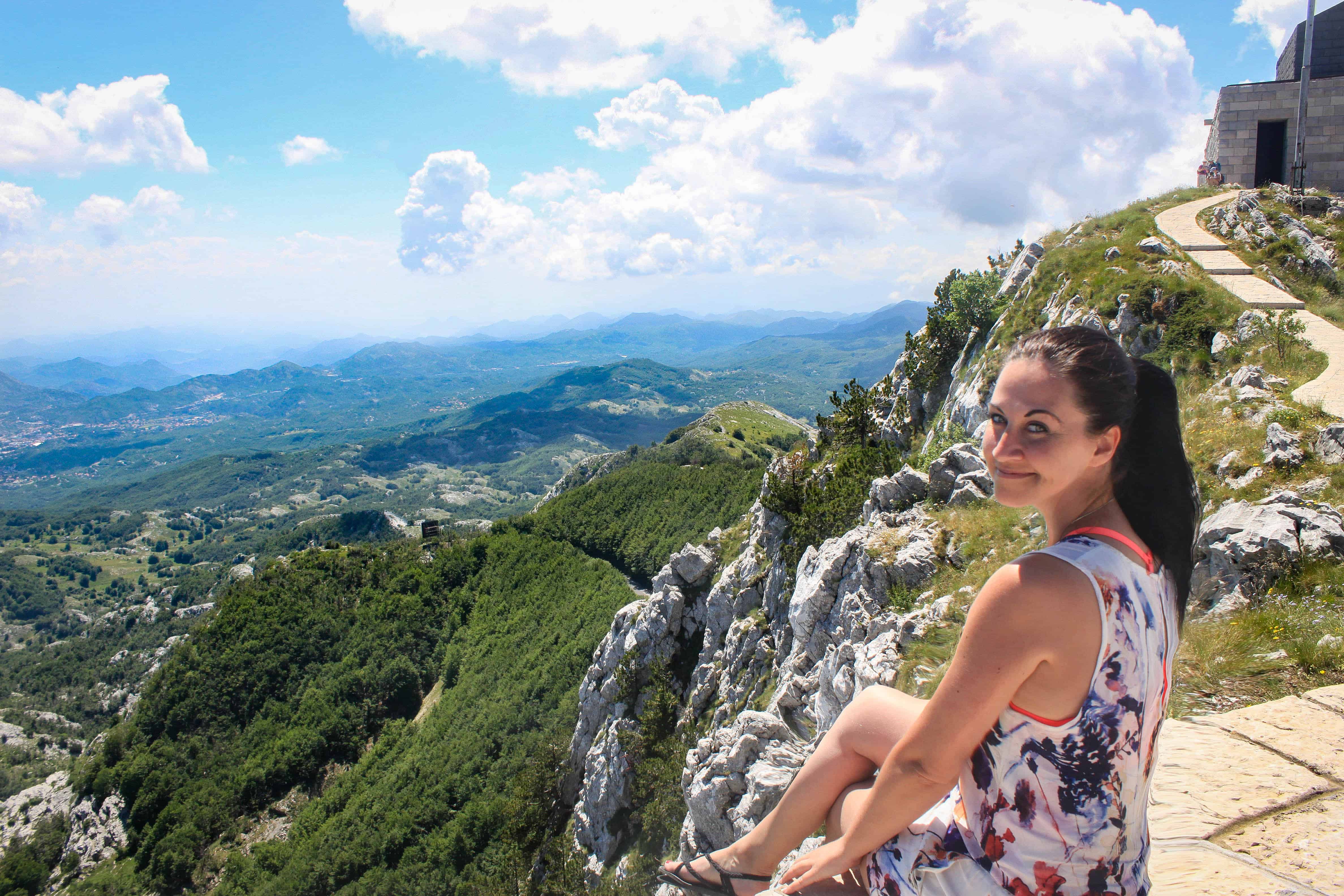
Before you can go travel the world freely, making it your oyster, there are a few travel safety tips that you should keep at the front of your mind. Safety arguably varies from person to person: if you are travelling with children, if you are a solo traveler, if you are over a certain age, and so on. However, safety is a key element to travel; perhaps the most key element.
The world beyond your home is a wonderful place, rich with things to discover. But every country has its dangers (even the reportedly safe ones) and following these travel safety tips doesn’t spoil your experience but only guarantees that you’ll have fun and get great memories. All the while staying safe and secure.
This post contains referral links for products I love. Adventurous Miriam earns a small commission at no extra cost to you if you purchase through my links. I appreciate your support ♡ Learn more
Travel safety tips for all travelers
After 13 years of traveling the world as a part-time traveler, I’ve picked up a few things about travel safety. I’ve only questioned my safety a few times during my many trips, and I’ve never found myself in a situation I couldn’t handle.
Of course, bad things can happen. But traveling isn’t dangerous. Most of the time, if you just follow common sense, you’ll be fine.
In this post, I’ll walk you through the most essential travel safety tips that will help you get the best vacation possible. That way, you’ll know all the information, so you’re prepared, confident and less likely to be a target.
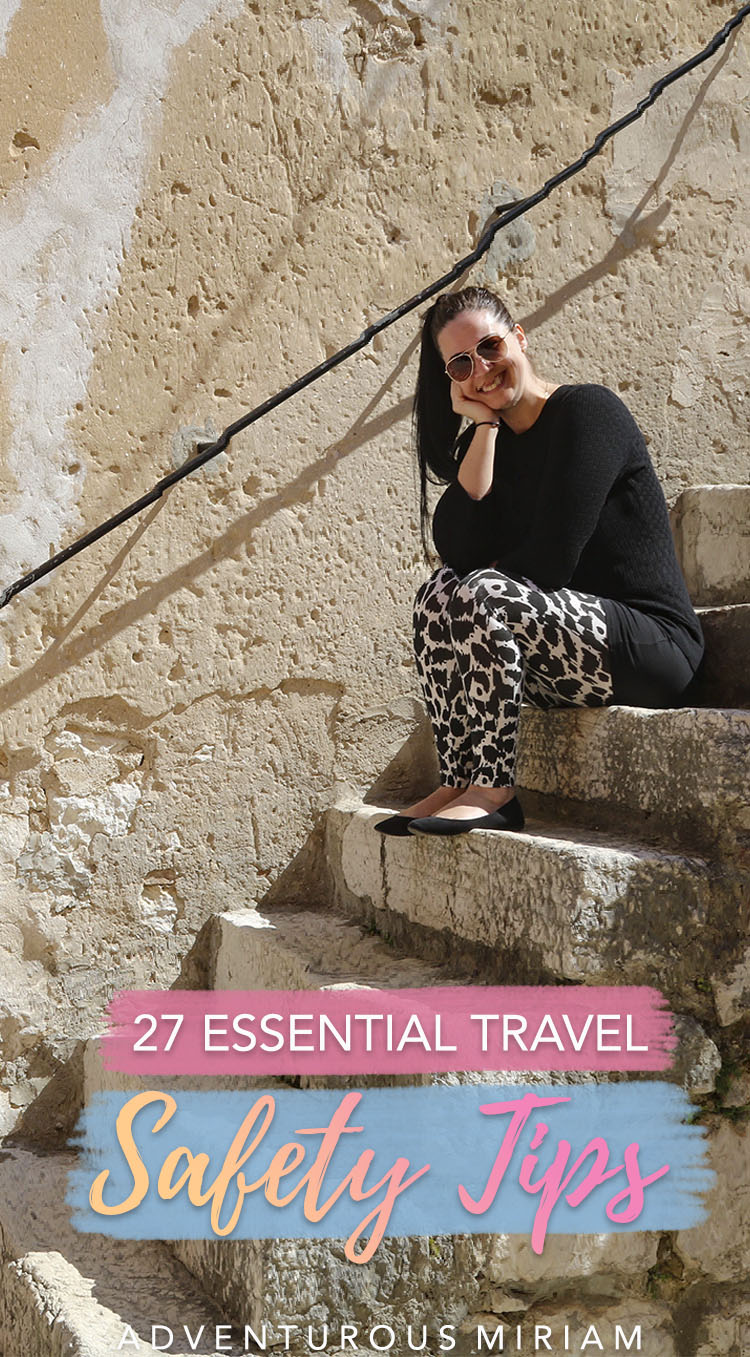
1. Always have this in your carry-on bag
This might be something that you want to do anyway, especially with expensive electronics like your laptop or camera. But it’s also worth keeping your medication, toothbrush, and some extra underwear on you at all times. Because then you’ve got some essentials for any eventuality – the big annoyance being long flight delays. You’ve been separated from your luggage, you’re stuck in an airport lounge, and you need your medication or you just want to brush your teeth or freshen up.
2. Choose a safe bag
Pockets get picked, and so do bags. A lot of people consider bag weight and size, but maybe not bag security, but this can save you so many headaches and bad situations. One of the best and safest bags is a Pacsafe bag. They have a variety of bag types and sizes, and all are secure.
3. Research common scams
Oh, the scams. These are a personal headache of mine.
Every country has them – be they taxi scams, blessing scams or airport scams. Once in India, I was scammed by a so-called holy man through a blessing scam. Another time in Bali, some locals tried to bully me into donating a larger sum before visiting a temple. But at that point I’d learned my lesson. And because I’d read up on local scams in Bali, I knew what to look out for.
My advise: Before heading to a new country, spend a little time on Google researching the scams to be wary of. Just type in “common scams in Thailand” if that’s where you’re going.
4. Know local emergency numbers
This is such an easy thing to slip your mind, but don’t let it. You can slip and fall anywhere, at any time, so have a working phone on you, and have that country’s emergency number memorised. They almost always speak English wherever you are in the world.
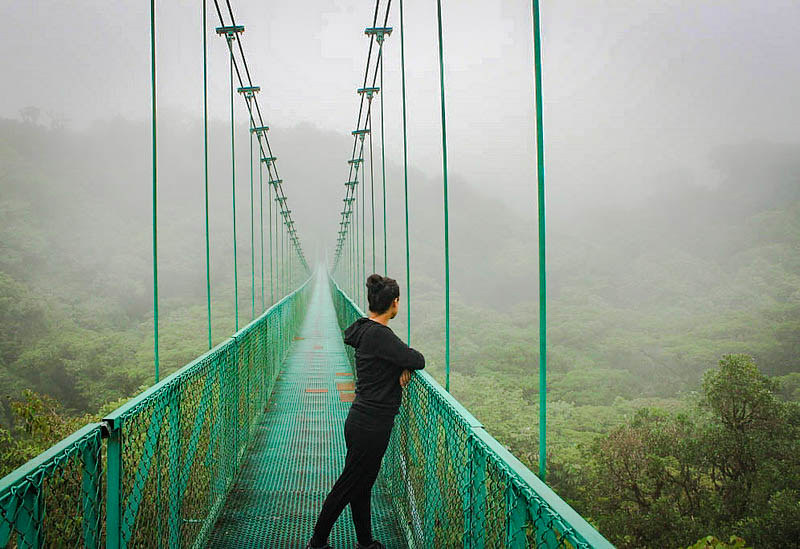
5. Carry your hotel’s business card in your wallet
This is great for a number of situations, including getting lost or a run-in with the police. Certain countries’ police instigate stop-and-searches, so have all the information they’ll want easily accessible on you. It’s also good reference – you can ask people for help if you’re lost or just link the hotel address to Google Maps.
6. Look confident
This applies to fellow solo women travelers especially, but men can get harassed and intimidated, too. It’s always best to look less like a tourist if you can. Look like you’re confident in your surroundings. If you don’t, you look vulnerable – at the very least to a scam, and at worst something dangerous.
7. Try not to stand out
Google can help you here as well. How do the locals dress where you’re headed? This is the kind of travel safety tip that might slip many travelers’ minds but it really matters. You want to blend in, it helps with your confidence in a new place. It’s also important for respect and to avoid trouble if you’re in a highly religious location that demands a certain dress code. You don’t want to offend anyone and get yourself in trouble.
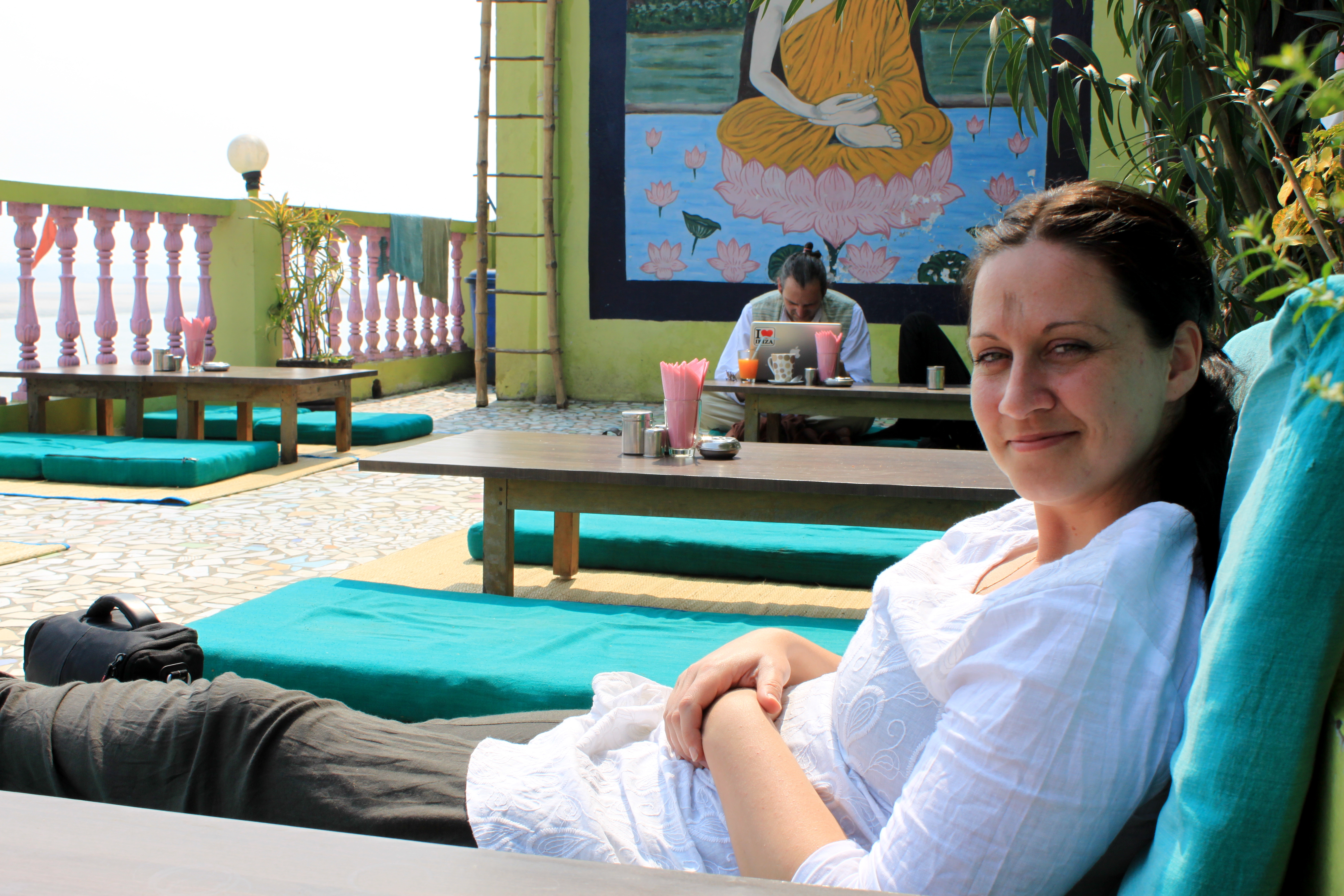
8. Know how to ask for help
This might require knowing a little of the local language, or simply being picky with who you ask. Women are usually a safer bet (that may be an assumption, but often it’s true). Memorising a few simple questions in the local language will go a long way.
9. Buy travel insurance
Please, please do this. It’s so cheap. Depending on where you go, an accident could bankrupt you if you’re not prepared. Travel insurance costs pennies for a short trip, and should never be forgotten. I personally use World Nomads, and you can read why in my travel insurance review here.
Use this form to check what it costs
10. Know your country’s embassy number
Another travel safety tip that may slip some people’s minds. I’ve had to call my embassy twice during the last 10 years. Once in Thailand during the Muhammed crisis, and the other time was actually also in Thailand during our wedding when our wallet got stolen (talk about bad timing).
The kind of danger or situation that would require knowing your embassy’s number is, of course, very rare. But why risk it? Save the number in your phone; write it down; memorise it. Just have it.
If you need it, you’ve got it. If you don’t, great!
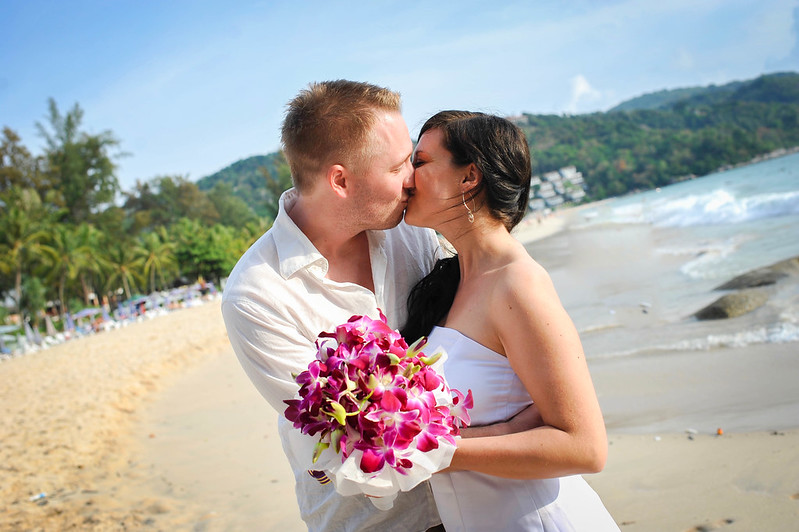
11. Register with your embassy
Let them know you exist and that you’re there. That way, you don’t feel invisible and they will be able to help you more speedily and easily if you find yourself in need of their aid. Again, it isn’t necessary for all the world’s countries. But if you register, they can contact you easily about safety conditions in your destination country or if there’s an emergency, like natural disaster, civil unrest, or even family emergency. Either way, it’s good to be on their speed dial list.
For US residents, you can use the Smart Traveller Enrolment Program.
12. Wear your backpack in front in crowded places
You’ll probably see local people doing this as well, especially in East Asia. This is partly for convenience: so that your backpack isn’t in anyone else’s way. But it’s mostly for your security: all of your valuables are within your eyeline. Keep your stuff visible and within reach.
And don’t worry about looking like a nerd. I’ve always worn my backpack like that, especially at the airport. It’s better to be safe than sorry.
13. Share your itinerary with a friend or family
Your family might even ask you to do this already! Before you go travel, let your friends know where you’re going. Keep them clued in on where you are on any given day. If you can, keep them up-to-date daily on where you are and what you’re up to. At the very least, this helps you feel less isolated when traveling solo.
14. Store all your important documents in the cloud
Copy of passport, visa card, travel insurance, flight tickets.
If the worst happens and your passport, laptop, or phone breaks, gets lost, or is stolen, you can still access your documents via the cloud. This will help your embassy know who you are and that you exist. It’s a level of security that cannot be taken away from you, and well worth making use of.

15. Trust people, but be smart
Reading travel safety tips can be a little daunting and cause you to feel a drop in confidence, I know. So many precautions can make the world suddenly seem scary. But you’ll see for yourself that, for the most part, it’s not. You can trust people to help you. There are always people ready to help you. Every country has police and doctors; kind people able to help. But don’t go trusting anyone and everyone. Think before you enter a dangerous area, or talk to someone who doesn’t seem trustworthy.
16. Think before you withdraw money
We are at our most vulnerable standing at an ATM. Some people install cameras to spy on your PIN, so check the ATM first: run your fingers along the machine’s creases and just be wary of gizmos that might be able to get your number. Also check over your shoulders, make sure nobody is standing near you. Keep your backpack on your front; don’t leave it on the floor. Be secure every time you approach an ATM.
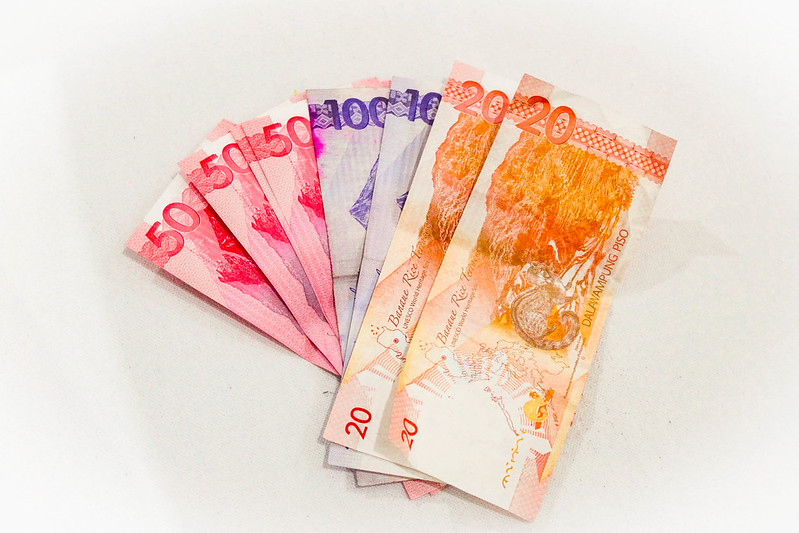
17. Always trust your intuition
If a place looks dodgy, it probably is. If a person looks dangerous, he might well be. A lot of travel safety is common sense. If someone is kindly ushering you into their cab, don’t take it. If someone is pressuring you into buying something, don’t buy it. You follow your plans, your intuitions; don’t be side-tracked by people who may want to scam you or worse. Be aware that pressure can be put on travellers, but use your intuition, call for help, or just keep away if you’re not sure.
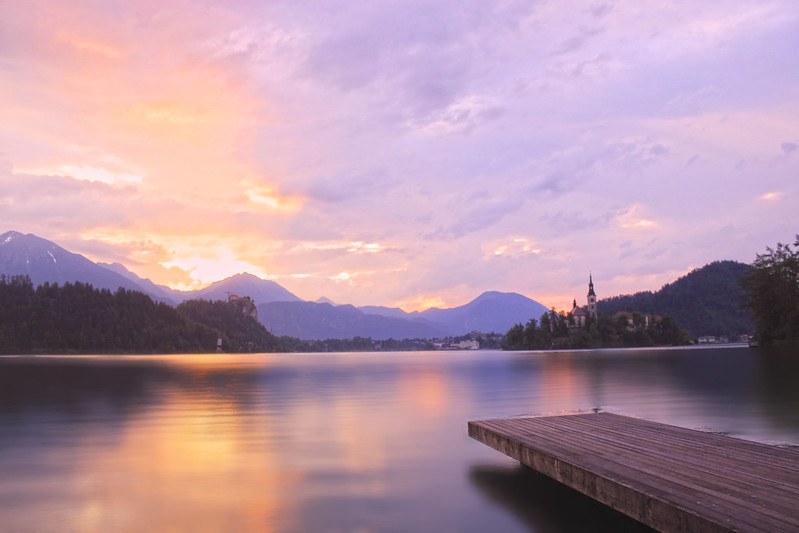
18. Learn basic self-defence
I’m not saying spend a year heading up the ranks in your local karate club. But knowing the best way to get out of being grabbed, or the fastest way to stun someone to give you time to get away will only allow you more confidence when you’re traveling. Knowing you can protect yourself if you need to will go a long, long way in making you feel stronger and more capable.
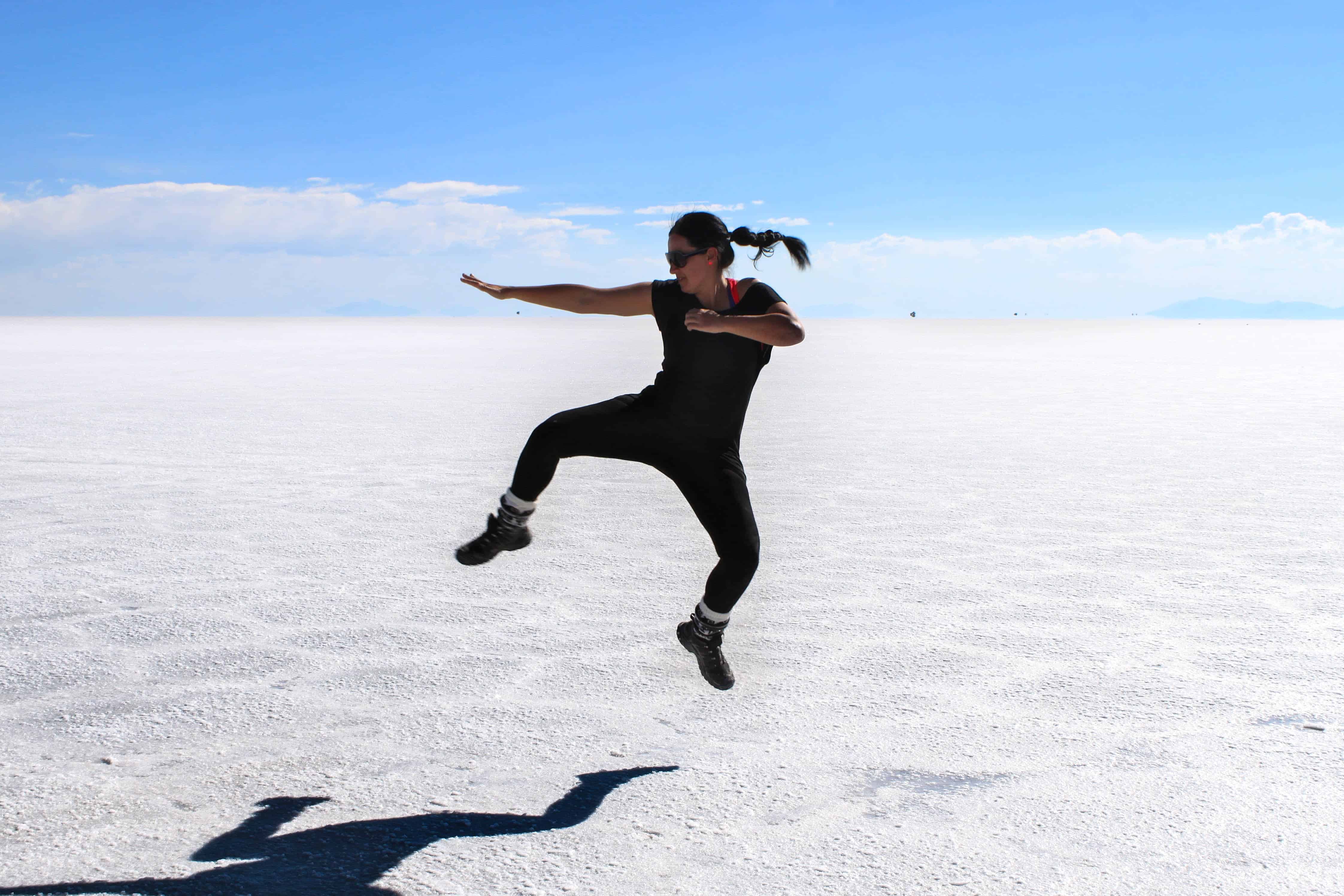
19. Lock up your valuables
Even the most budget of hotels and hostels usually have a safe, even if you have to ask for it. While it might seem overly cautious in certain countries or cities, the thing with being overly cautious is that it doesn’t matter. It doesn’t matter if it seems overkill to do any of the things on this list, if it means keeping yourself and your valuables safe. You can also bring your own lock for added security, meaning that you have now locked your things away in a manner that you trust is totally secure.
Tip: Keep your valuables (computer, etc.) in the hotel safe, and bring your own pad lock.
20. Never share info with strangers
It doesn’t matter where you meet them or how, keep certain information to yourself when traveling (especially alone). If you meet someone, consider their eagerness to know certain things about you. They might be bad news; they might be a thief or looking to scam you.
With access to where you live, where you’re staying, and where you’re travelling, there’s a lot that a person can do with that information. So be cautious about what strangers know about you.
21. Splurge on extra safety
When picking your accommodation, consider safety. Do they have a safe? Do they have locks on their doors? What kind of location are they in? How safe will you feel returning to your hotel alone at night after a day of exploring? Fellow solo women travelers, I’m thinking of you here. It’s always worth paying a little extra for your own safety and peace of mind. Google the safer areas; check the hotel’s security on Booking.com. It will pay off if you can pay extra to keep you safe.

22. Be careful what you eat
This is something a lot of us already consider when traveling. When it comes to the more exotic delicacies, you’re usually safe. Food poisoning is a greater concern in budget restaurants with no concern for hygiene. Again, it’s worth paying a little extra for a better-quality eatery if it means avoiding poorly-prepared foods that might make you sick. Be smart and research any restaurant before going in.
When it comes to street food, that becomes a lot harder, but most countries famous for their street food (Taiwan, Korea, Singapore) are safe to enjoy. If they weren’t, they couldn’t stay in business.
Tip: A good tip is to only eat at restaurants or food stalls with a line of people. If you see other people eating there (especially locals), you’ll know it’s safe.

23. Bring a first-aid kit
This is something to keep close at hand in your carry-on luggage. You could scrape your knee, get stung by a swarm of mosquitos, or sprain an ankle on a hike. Things to include should be:
- Bandages
- Wound-cleaning spray
- Zip Stitches
- Gauze
- Dust/pollution mask (if you’re going to a place like Beijing)
24. Don’t drink too much
This is just a gentle reminder that you inevitably become more vulnerable the more you drink. Think about what you drink, where you drink, and who you drink with. Keep close to your accommodation and preferably drink with someone you can trust. Have fun, but don’t ever be reckless.

25. Learn how to be street smart
Think about what you have that people could want, and why they might be talking to you. Consider your situation versus theirs when engaging in conversation or even when asking for assistance.
26. Bring a safety whistle or door stop
This is especially useful for solo women travelers. People often make jokes about ‘rape whistles’ but it’s less funny when it could save your life and keep you safe. This personal alarm includes two alarm buttons, an LED light and a backup whistle. There’s a key ring with back clip so you can attach it to your keys. It’s pretty smart.

27. Carry a secret pocket infinity scarf
Forget about the fanny pack.
These infinity scarves can be a real lifesaver when it comes to securing your valuables. The more intuitive ways you have of keeping your valuables safe, the better. Infinity scarves are a similar deterrent, hiding your items in a place no thief would expect to look. You can’t pickpocket a scarf, after all.

Are you going on a trip and have some questions about travel safety?
More travel safety posts you might like
- Bali scams – and how to avoid them
- 8 common taxi scams (and how to avoid them)
- 10 common travel scams and how to avoid them
- 20 solo female travel safety tips
- Do I really need travel insurance
- Which vaccines do I need?
- Travel Insurance (Review) – Do I REALLY Need It?
- 10 easy ways to treat Altitude Sickness (AMS)




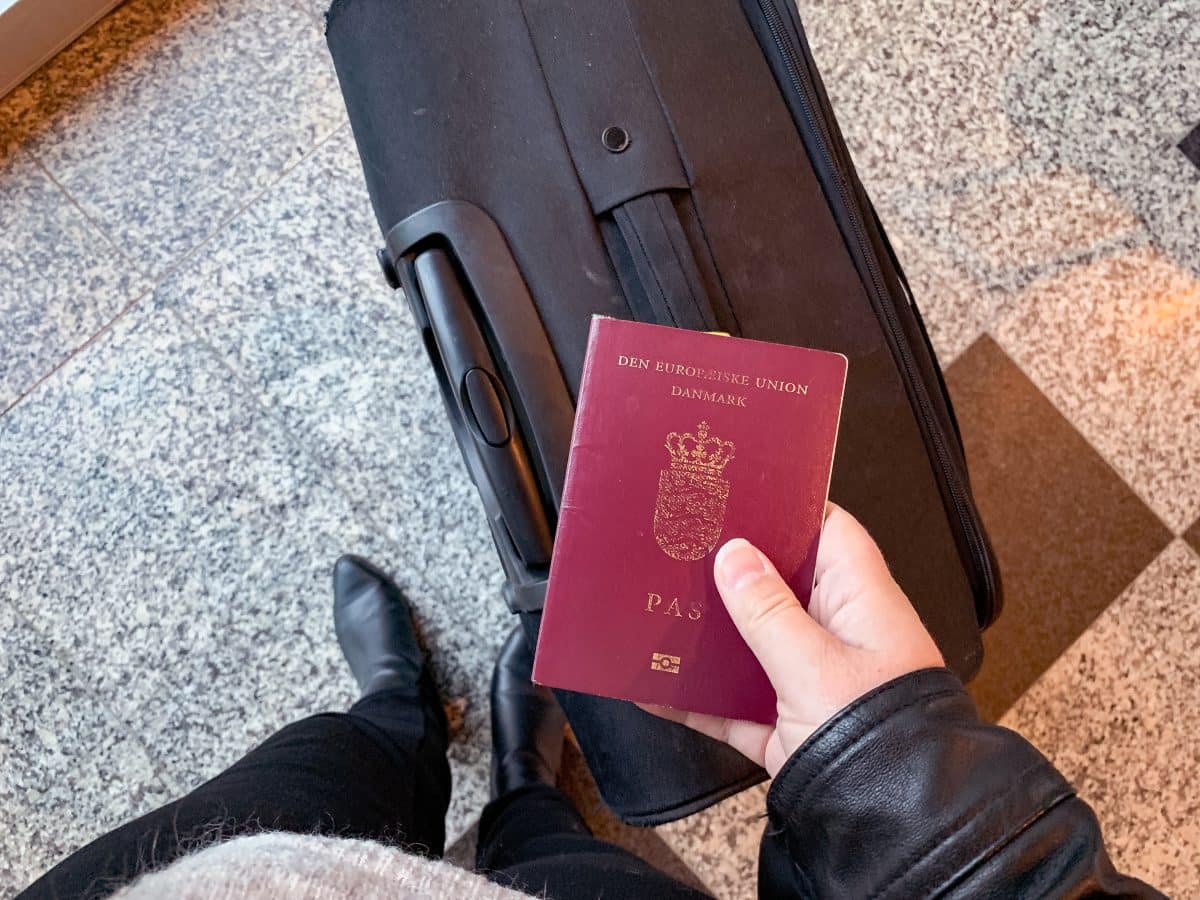

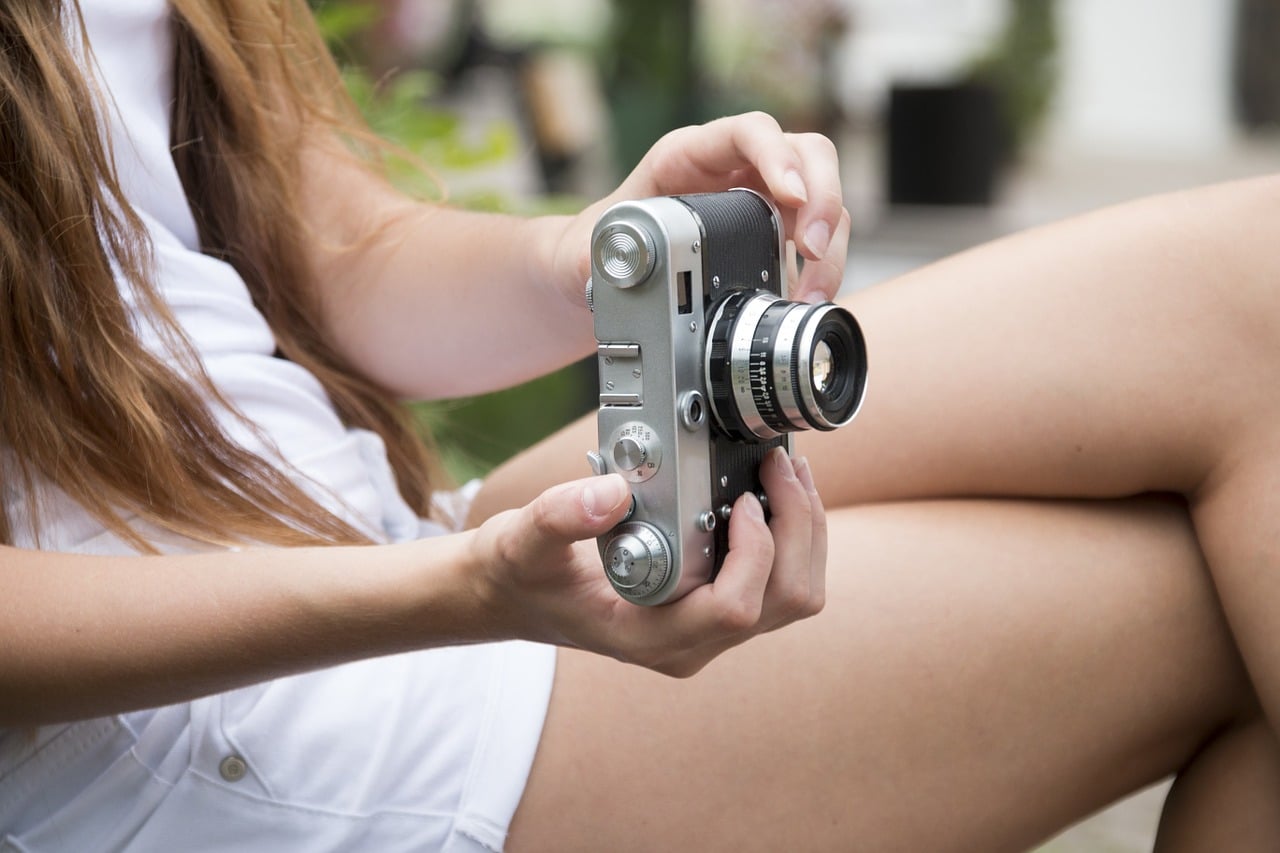
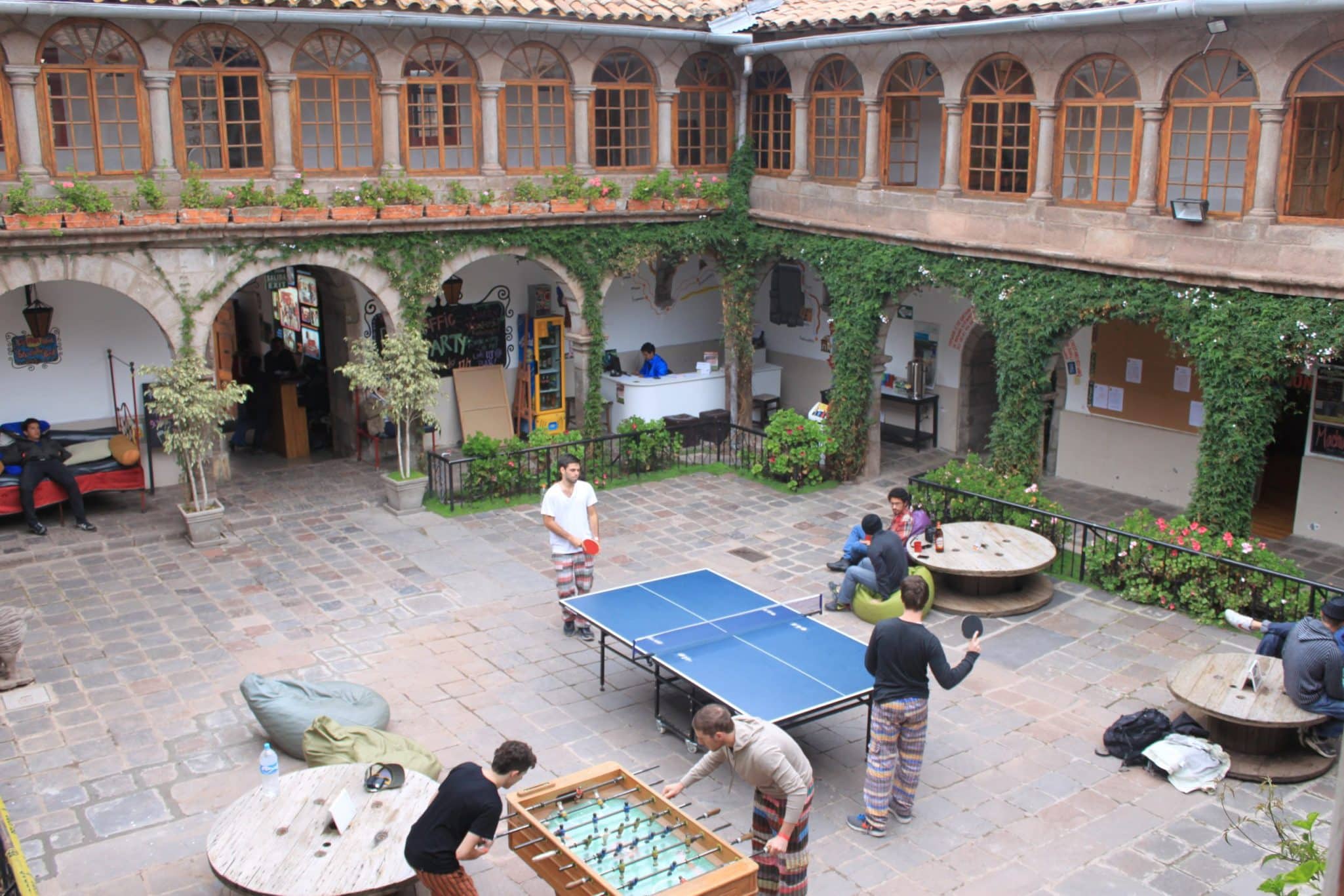

Important Travel Safety Tips which Everyone Should Know.
Thanks 🙂
Great post! Very informative. 🙂 One of the most exciting aspects of travel is trying foreign and exotic food.
Absolutely agree. I love to taste local foods.